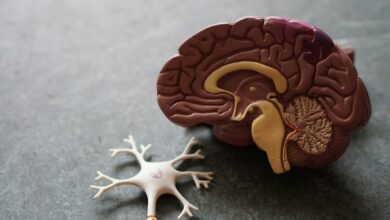Why You Should Take a Creatine Pre-Workout Supplement

You’ll undoubtedly find creatine on the list of ingredients in a pre-workout supplement, whether it be a stim-free pre-workout, a high-stim pre-workout, or anything in between.
Have you ever wondered what creatine means or why it matters? See why you should add creatine in your pre-workout supplement by reading on.
What Is Creatine?
Muscle cells naturally contain a chemical called creatine. It is produced by the body from arginine and glycine, two amino acids.
Creatine has many applications. When it comes to fitness, though, its major role is to assist the muscles by giving energy when you’re lifting huge weights or indulging in tough workouts.
Why Is Additional Creatine Used?
Many people don’t understand why they need to increase their body’s creatine production.
The short answer is that everyone has a variety of Creatine stores. Those who don’t eat meat or other animal products, for instance, may have lower levels of creatine than others who do. Your hormone levels, muscle mass, and how much time you spend exercising all have an effect. By taking additional supplements, you can increase your body’s natural creatine stores. This increases the quantity of phosphocreatine that is available in your cells as stored energy, allowing you to produce more ATP and work out more efficiently.
Creatine HCL vs. Creatine Monohydrate
You will probably notice two different types of creatine stated on the label of supplements that include it, such as pre-workout supplements: creatine monohydrate and creatine hydrochloride (Hydrochloride).
Both of these Creatine supplements work similarly well and have similar advantages. Nonetheless, there are certain differences between them that you should be aware of, such as the following:
Both of these creatine pills function and offer benefits in a comparable way. Nonetheless, you should be aware of several distinctions between them, such as the following:
Creatine Mono
Creatine monohydrate is the most common type of creatine available in dietary supplements. It is produced by combining the molecules of water and creatine.
Creatine HCL
On the other hand, Creatine HCL is made by combining a Creatine molecule with a hydrochloride molecule. This combination might make it easier for creatine to be absorbed. Moreover, it can help reduce water retention.
Some folks choose creatine HCL because it doesn’t cause water retention (bloating is a common side effect when you first start taking Creatine supplements). Yet, both creatine HCL and creatine monohydrate appear to be equally beneficial.
Why Should Your Pre-Workout Supplement Include Creatine?
Whether you select a pre workout with creatine or add your own doesn’t matter. Just a few of the numerous advantages of including creatine in your pre-workout supplement include the following:
Higher endurance
Using creatine supplements has many benefits, two of which are increased muscle endurance and stamina.
Numerous folks learn that regularly consuming creatine helps them to increase the complete amount of work they accomplish during each workout session. Because they have more energy available, they can complete more reps with heavier weights and good form.
Intense aerobic exercise can benefit from creatine’s ability to increase endurance, allowing participants to exert themselves for longer periods of time before feeling fatigued.
Rapid muscle growth
When your endurance improves and you have more energy available during your workouts, it is easier to move forward and see results from your training. Creatine might also be beneficial for other elements of muscle development.
For instance, according to certain research, ingesting creatine raises the levels of particular hormones like IGF-1 (Insulin-Like Growth Factor 1). A growth hormone called IGF-1 is essential for the process of building muscle.
Creatine can also increase muscle cell water content and cellular hydration. This further encourages muscle growth and regeneration.
It’s simpler to establish and keep up reliable routines. It’s crucial to keep in mind that creatine functions in layers. You won’t notice any significant benefits or changes in your ability to perform at your best during exercise after utilizing it as a supplement just once. You must consistently take phosphocreatine in order to increase the levels in your body. Given that taking creatine consistently seems to be the most important factor (although the majority of research suggest that it’s best to take it shortly before or after your workout), you might be wondering what the benefit of adding creatine to pre-workout is. One of the main motivations for doing this is that it motivates many sportsmen and gym goers to be more dependable. By combining two beneficial nutrients into one product, they may save time and make sure they don’t forget anything.
Using a pre-workout drink that already contains creatine is a terrific answer if you’re busy and don’t have time to mix up a variety of supplements or if you have trouble remembering to take them.
How Does a Pre-Workout with Creatine Supplement Work?
Let’s discuss about the advantages of pre-workouts, both with and without creatine.
The purpose of a pre-workout. You’ll work out with increased energy and endurance if you take creatine before your workout.
On days when you’re dragging your feet or feeling a little (or a lot) tired, pre-workout can help and give you the boost you need to get in a good workout.
Pre-workout supps are another way you may assist your body in getting ready for exercise. Preparing your pre-workout supplements is a great ritual to help you get into “the zone” and signal your brain that it’s ready to start working. When should you take your pre-workout? How soon after waking up?
Most people benefit best from pre-workouts when taken 15 to 30 minutes before exercise. This is especially true if they are using a pre-workout supplement that contains caffeine and creatine.
Caffeine reaches its peak efficacy 30 to 60 minutes after consumption. By taking it during the 15 to 30 minute pre-workout window, you can ensure you benefit from it during the most difficult portion of your workout.
The Pre-Workout Effect: What Difference Can It Make?
Do pre-workout vitamins help you work out more effectively?
No. Many people put in a lot of effort at the gym and get amazing results without utilizing any supplements.
But are pre-workout supplements beneficial, especially those that contain creatine? Absolutely.
What’s Important When Judging Pre-Workout Effectiveness
Keep in mind that pre-workout effectiveness varies depending on a wide range of factors when calculating its impact.
For example, how much caffeine is in your pre-workout supplement? Are you using it frequently and creating a dependency on caffeine, or do you cycle off and occasionally switch to a non-stim pre-workout to give your body a rest?
The effectiveness of your pre-workout depends on your lifestyle. For instance, if you don’t fully fuel yourself before a workout, you may still feel weary even if you’re using a high quality pre-workout drink.
The same is true with sleeping. All the caffeine and Creatine in the world won’t help you if you’re sleeping too little and working long hours all the time.
Creatine can be added to pre-workouts. As of now
Regardless of your objectives, creatine might be an excellent addition to any supplement stack. By incorporating a pre workout with creatine, you can easily ensure that you get it frequently and avoid taking multiple supplements at once.
Apart from this, if you are interested to know more about supplement stack then visit our tech category.


